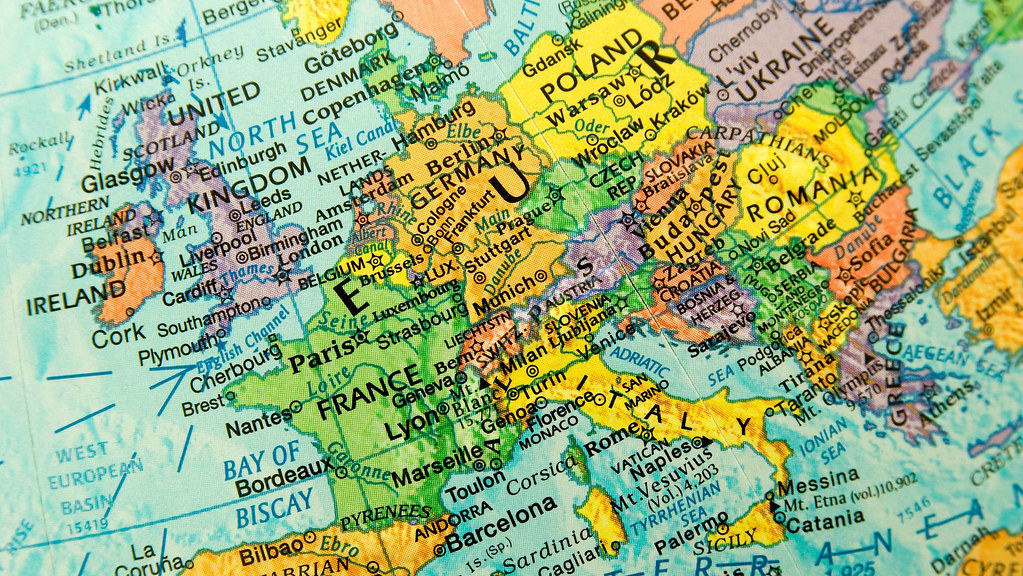UKIP victory in the UK
Dr David Cutts:
"UKIP has been able to broaden its appeal to those voters ‘left behind’ and alarmed by the extent of social and economic change – concerns about European immigration - while retaining their mainstream political legitimacy on the European issue. "UKIP has two distinct groups of voters: core support from blue collar, financially insecure working class men, whose traditional loyalties lie with Labour but have been ‘left behind’ in modern Britain as mainstream parties have sought the middle class vote; and strategic Conservative sympathisers, who express hostility to the European Union, but are less loyal to UKIP in general elections. Farage has a unique appeal as a charismatic leader, seen as being able to articulate to both sets of voters.
"The problem however for UKIP moving forward is that they have to keep that uneasy coalition satisfied. They also do not possess the local infrastructure, resources, targeting experience and tactical nouse on the ground to mount successful constituency campaigns. This is crucial in a general election if UKIP is going to turn growing support into parliamentary seats."
Euroscepticism across Europe
Dr Nick Startin:
“We tend to think of euroscepticism as a uniquely British phenomenon but it has now become increasingly embedded across EU nation states with eurosceptic parties likely to be the big winners in this month's European elections.
"I think there are three key-turning points which have contributed to the mainstreaming of euroscepticism - first, the 1992 Maastricht Treaty through which the European Community became the European Union and as such became more politicised; second, the 2004 EU enlargement which saw 10 new countries join (8 from Central and Eastern Europe) placing pressure on the EU concept of the Freedom of Movement; and, third, the fallout from the economic crisis, something which we are still digesting but has led to increased scepticism towards the EU.
"As a result of this increase in anti-EU sentiment across nation states, we are likely to find the European Parliament increasingly dominated by eurosceptic MEPs which will give food for thought to Europe’s elites as they try to wrestle with how to take the EU forward at this critical point in the history of the European project."
Apathy & Abstention
Lecturer in French politics, Dr Aurélien Mondon:
“A lot of media coverage highlights the rise of the Far Right across the EU but this misses the bigger picture.
"If these parties get up to 30 per cent of the vote, but only a third of the voters turn up, then they receive less than 10 per cent of all registered voters - hardly the landslide or democratic shock that some would suggest. What is actually happening is that people are switching off. This is what we should focus on, but of course it is a lot easier to look at the Far Right than abstention. Europe is facing a serious crisis of democracy, and the Far Right is only a minor symptom."
UK - EU relations
Reader in European Politics, Dr Susan Milner:
“From the beginning Britain has had an uneasy relationship with European integration. Some people talk about an ‘awkward partner’, some people talk about the politics of semi-detachment, but there has been this reluctance to sign up for political union. These issues in Britain have been exacerbated, particularly as the EU has deepened integration. “The referendum idea is like the genie that has been let out of the bottle. Once it’s been expressed it becomes a very powerful idea. In this sense UKIP has been very successful at not only getting its key ideas debated but actually taken up by the main political parties.”
The historical perspective
Second World War expert, Dr Hanna Diamond:
“At a time of commemoration of the centenary of World War One and with the 70th anniversary of D-Day coming up, it is timely to remember the historical angle of the EU project and the importance of the World Wars in acting as a backdrop to its emergence. After the Second World War, many Europeans felt that there was a pressing need to come together lest it ever happen again and Winston Churchill was a key proponent of this. While there was initially no consensus about what the basis of this collaboration should be, an economic agreement eventually emerged as the most effective way to move forwards to aid the post-war recovery and ensure Germany’s economic power would be linked to that of the other partner countries. It was always the intention that Britain should be at the heart of these arrangements.
“Britain, however, has long had an ambivalent view of its relations with its European neighbours. British war memory was marked more perhaps by the popular perception that Britain had been left to stand alone against the Nazi threat and the view that its real Allies in its time of need were the Americans who came to its aid. Distracted therefore by ideas of Empire and efforts to strengthen its ‘special relationship’ with the US, British politicians only came to see value in Europe at a much later stage and finally joined in 1975. Britain’s role within the EU and the benefits of this involvement thenceforth became the topic of much discussion and debate both at home and within the EU itself. Although our Empire is no more, and the US seems a less reliable ally, rather than seeing the European project as an opportunity to work together and build upon our shared cultural values and shared experiences of the past, many would still prefer to see the UK ‘go it alone’."

